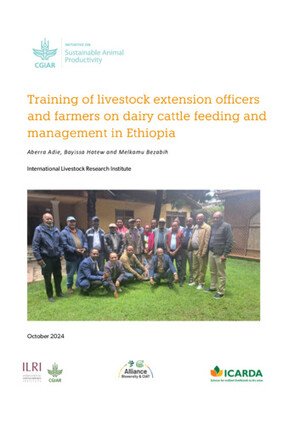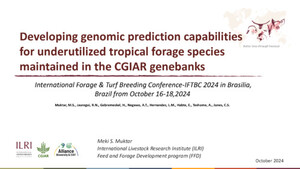
Relative palatability and seasonal agronomic performance of selected pasture legumes for species mixtures in dry-subhumid West Africa
Abstract
Relative palatability and some agronomic traits were studied for nine legumes including Aeschynomene histrix, Centrosema brasilianum (two accessions), Centrosema pascuorum, Chamaecrista rotundifolia, Stylosanthes guianensis (two accessions) and Stylosanthes hamata (two accessions). All species were consumed by cattle but the relative palatability varied according to season. Only the two S. guianensis accessions were positively selected throughout the year. A positive relationship was established between the ability to retain green leaves in the dry season and palatability. Once established, the two C. brasilianum accessions out-performed the other legumes in their ability to stay green and retain leaves in the dry season; related to the ability to retain green leaves under drought conditions, C. brasilianum ILRI 155 was among the most palatable legumes in the dry season. S. guianensis accessions had the highest dry matter (DM) yields and one of them (ILRI 15557) had the highest nutritive value. In contrast with earlier results in the same environment, C. rotundifolia and A. histrix performed poorly in terms of DM productivity. The implications of the agronomic characteristics of the legumes for the management of legume-based pastures in crop/livestock systems are discussed and the concept of legume–legume mixtures, composed of several compatible species, is advocated.
Citation
Peters, M., Tarawali, S.A. and Schultze-Kraft, R. 2000. Relative palatability and seasonal agronomic performance of selected pasture legumes for species mixtures in dry-subhumid West Africa. Experimental Agriculture 36(3):353-368.









